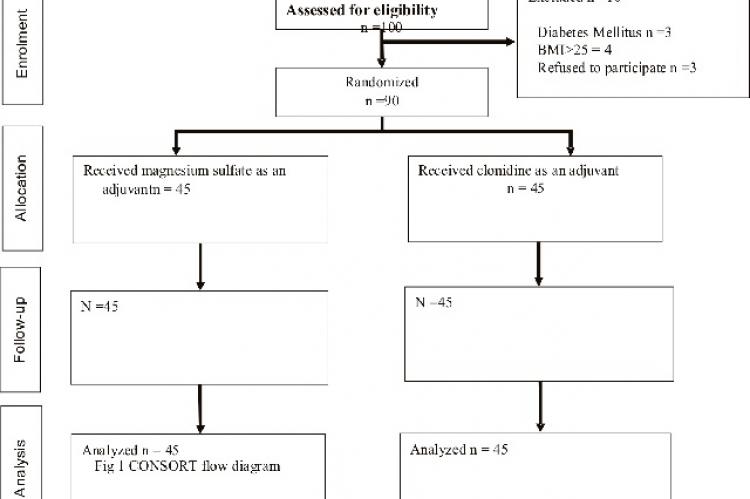There are limited studies conducted to examine the effect of magnesium sulphate administered as an adjunct to epidural bupivacaine. An attempt is made in the present research to compare onset of sensory block and motor block, time required for two segment regression, and incidence of post-operative complications between magnesium sulphate and clonidine co-administered epidurally as an adjunct to bupivacaine for lower abdominal and lower limb surgeries. In all ninety patients scheduled for lower abdominal and lower limb surgeries under epidural block of bupivacaine were randomized into two groups. Magnesium sulfate was administered to 45 patients (Group A) whereas clonidine was given to 45 patients (Group B). Mean onset of sensory block, mean onset of motor block, mean time required for two segment regression, mean time required for first analgesia and incidence of post-operative complications were recorded. Quantitative variables were compared using unpaired student’s “t” test whereas qualitative variables were compared using Chi-square test. Time of onset of sensory block and motor block, time required for two segment regression, time for post-operative analgesia and incidence of untoward side effects were significantly higher in clonidine group as compared to magnesium sulfate group. Clonidine produced prolonged duration of anesthesia with sedation. Magnesium sulfate is better than clonidine as an adjuvant to bupivacaine in epidural anesthesia.
View:
- PDF (7.8 MB)


